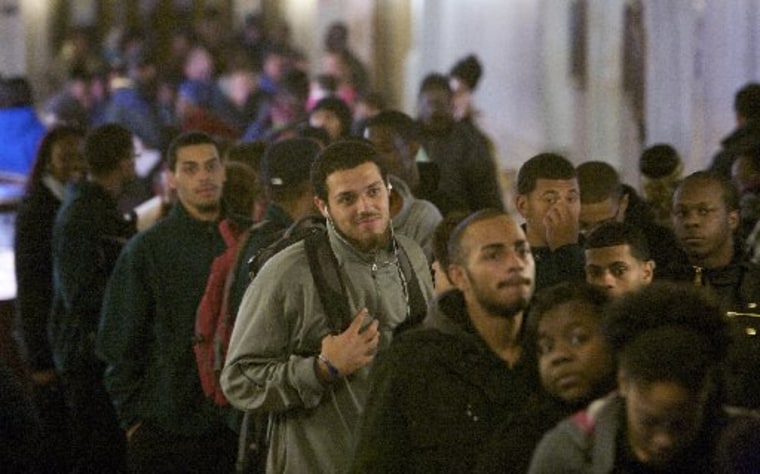It looks like the GOP’s plan to suppress liberal-skewed voters backfired.
The 2012 presidential election may have been the first time blacks voted at a higher rate than whites, according to a new study by the Pew Research Center—despite several Republican-controlled state legislatures passing new voter identification laws.
African-Americans made up 12% of the eligible electorate this year, yet they accounted for 13% of total votes cast. This is the second presidential election in a row in which black voters “over-performed” (they did so in 2008 by the same proportion).
Whites’ turnout rate—votes cast as a share of eligible voters—declined in both 2012 and 2008, though whites’ share of the eligible electorate is also shrinking.
Whereas other minority groups have seen increased electoral clout largely because of population growth, blacks’ growing share of the vote in recent presidential elections is due to mounting turnout rates.
More hispanics and Asian-Americans voted in 2012 than ever before, but their turnout rates continue to lag behind that of the general public.
In the year leading up to the election, many GOP-led state governments attempted to pass bills aimed at requiring photo identification at the polls, restricting early voting, and curtailing voter registration efforts. Many black community leaders argued such voter suppression would disproportionately disenfranchise poor, minority, and elderly voters. While some Republicans claimed the measures were necessary to prevent voter fraud, others outwardly admitted to passing voter restrictions in hopes of hurting Democratic candidates.
There will be no firm verdict until the U.S. Census Bureau publishes its post-election survey on voter turnout next spring, but Pew’s circumstantial evidence shows that attempts at voter suppression failed to keep blacks from the polls—and may have even inspired progressive voters to turn out in higher numbers.
